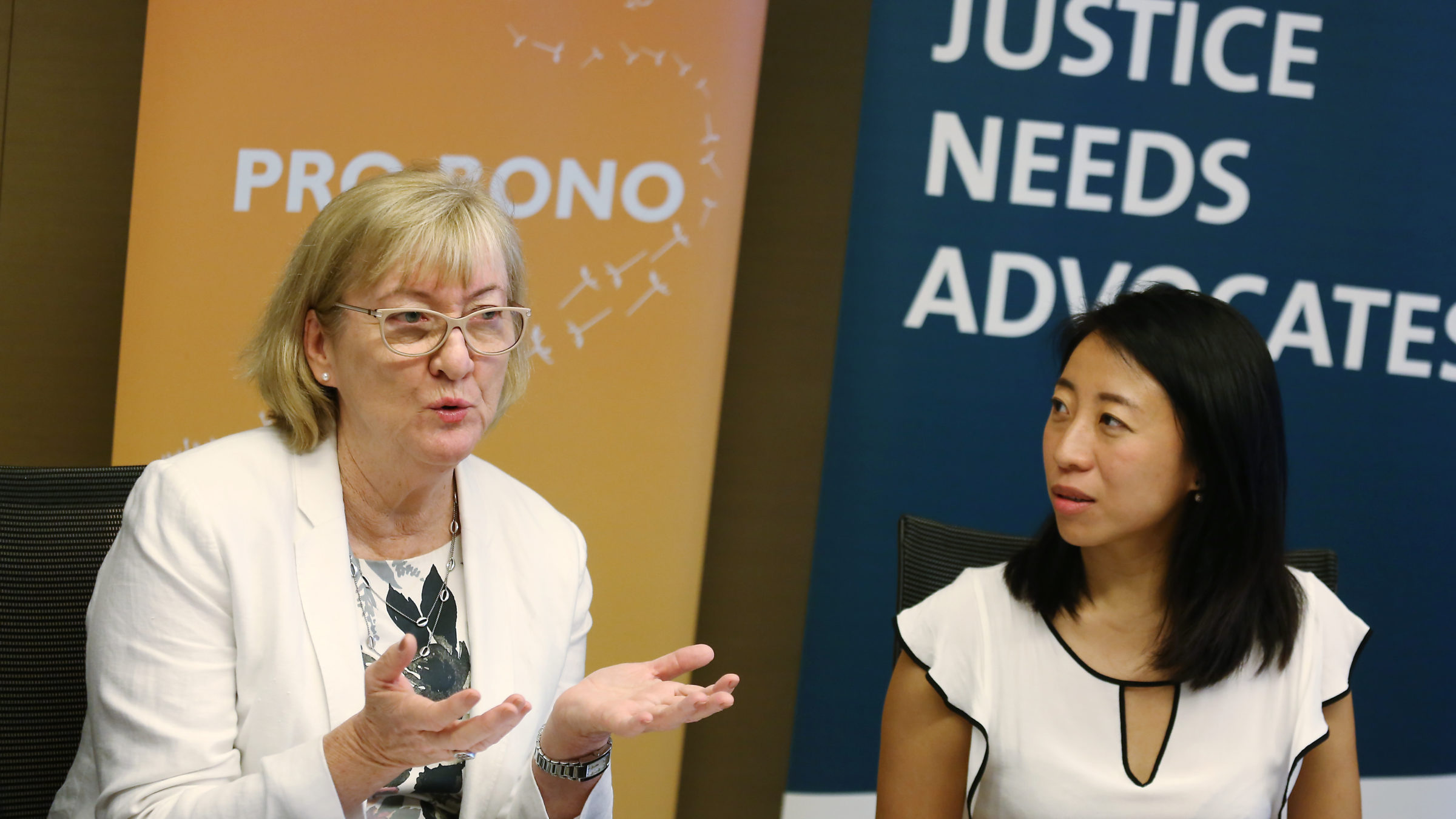The largest law firms in America go out of their way to highlight their “unequivocal” “passion for pro bono”—opportunities for attorneys to “advocate for equal justice,” “promote the rule of law,” and “serve those most in need.” Usually, they coordinate these activities through nonprofit legal services organizations, whose limited budgets require them to lean heavily on support from outside attorneys. For firms, highlighting their pro bono work burnishes their reputations with current and prospective clients, and helps recruit lawyers and law students who hope to serve their communities while still bringing home a BigLaw paycheck.
What firms omit from their public advertising, however, is that the work they do for many of their paying clients exacerbates the systemic problems that necessitate pro bono representation. On balance, the existing system of pro bono representation acts more as reputation laundering for the legal profession than effective advocacy for those most in need.
First, because firms need to avoid conflicts with paying clients, those clients’ business needs essentially decide which pro bono issues firms can work on. For this reason, many areas of law affecting vulnerable communities, such as foreclosure and employment law, remain mostly untouched by large firms. When a firm’s biggest clients are also among the nation’s largest employers, it is unlikely to take up a class action suit on behalf of employees alleging discrimination based on race or gender, no matter how compelling the case may be.
More troublingly, in some cases, firms’ paying clients actually contribute to their pro bono clients’ problems. For example, a number of firms involved in Washington, D.C.’s right to counsel program in eviction cases, including DLA Piper, Sidley Austin, and Hogan Lovells, also represent institutional property investors as that sector fuels sky-high rents. It is all well and good to help struggling renters negotiate repayment plans, but it’s really just window dressing if your main clients are helping to price them out of their homes.
Similarly, Jones Day’s web site touts “The Border Project,” which allows lawyers to represent migrant children, women, and families in their asylum petitions. Yet the firm also employs former solicitor general Noel Francisco, who defended the Trump administration’s Muslim ban and turned a blind eye towards some of its most xenophobic policies, and Don McGahn, one of the Muslim ban’s architects. For lawyers working on these cases, the irony is that their tasks are far harder—and the stakes for their clients far higher—because of policies for which their colleagues previously stumped.
There is, of course, value in providing representation to people who cannot otherwise afford it. But when attorneys at large firms are only expected to devote about one percent of their time to pro bono work, it is hard to imagine that these highly-publicized pro bono cases have much of an impact relative to their cases for corporate clients. In context, pro bono work starts to look more like a shield against social accountability than a viable model for justice.
Setting aside the tensions between paid and pro bono portfolios, the pro bono system is inefficient. I have worked with nonprofits and legal aid organizations staffed by skilled attorneys who were experts in their fields—eviction defense, veterans’ benefits, homeless services, and so on. But to take advantage of pro bono services, these organizations had to dedicate at least one staff member to managing pro bono relationships, hand-holding attorneys with no experience or expertise. Other attorneys need to get involved in training, taking away from time they could be spending on their clients.
Part of the rationale for the existing model is that pro bono attorneys act as “force multipliers” who can bring more guns to the fight. But in my experience, the quality of representation varies significantly; often, clients get what they pay for. When nonprofit staffers need to spend more time checking and correcting pro bono attorneys’ work than it would have taken to do it themselves, the system is broken.
Aside from these inefficiencies, a large part of running legal services organizations is stroking the egos of pro bono partners by dangling awards, offering board seats, and providing other forms of public recognition. This dependence on private-sector largesse is unsustainable and exploitative, and pulls nonprofits away from their core missions. If firms are serious about making a difference, they should help nonprofits to what they do best—and dedicate their considerable resources to addressing the systemic inequities that drive the need for free legal services in the first place.

Annette Bain (left), Pro Bono Counsel for Asia, DLA Piper and Ng Tze-wei, Deputy Director of PILnet Hong Kong, attend a 2017 briefing on the release of a report regarding legal community assistance in Hong Kong (Photo by Jonathan Wong/South China Morning Post via Getty Images)
First, rather than donating a small fraction of associates’ time, firms should prioritize making financial donations that enable legal services organizations to hire staff attorneys who are best equipped to handle pro bono cases. A handful of firms already provide stable, annual funding for specific positions, but this practice should be the rule, not the exception.
This does not mean firms should eliminate pro bono entirely; attorneys at firms of all sizes should have the chance to donate their time to worthy causes. But at an institutional level, firms should think more carefully about the costs of “donating” work that requires constant supervision by experts. If a firm wants to have an impact in a field where this dynamic is unavoidable, the firm should simply fund the work of a nonprofit instead.
Second, firms should focus on areas where they can address the underlying causes of their pro bono clients’ legal problems. For example, Holland & Knight attorneys currently provide free counsel to people facing eviction. But with its considerable lobbying power, the firm would also be well-situated to help organizations like the National Low Income Housing Coalition lobby for changes to housing and development law, and push for increased funding for the Legal Services Corporation. Rather than merely assisting the same people legal aid could serve, firms could complement that work by fighting for systemic change.
None of these proposals, by themselves, will ensure that legal representation is available to everyone who needs it. But they would go a long way to mitigating the harms the legal system inflicts on regular people. If firms care as much about serving their communities as they say they do, there are plenty of ways for them to prove it.

